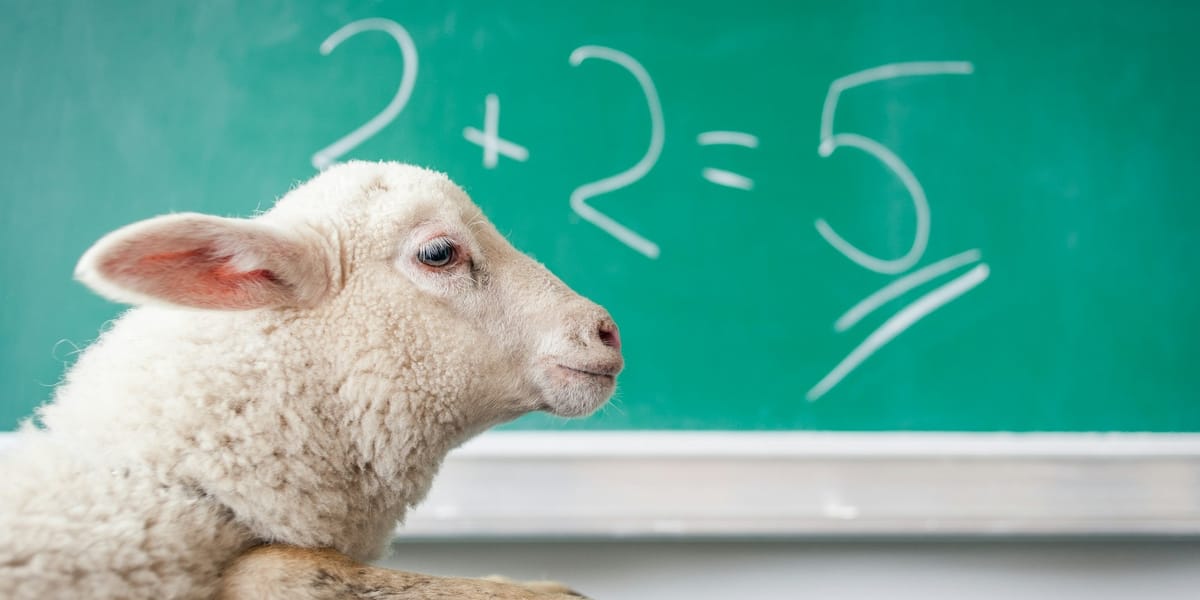The Mathematics Gap: A Global Crisis in Education

Mathematics, the language of science and technology, underpins our modern world. However, a significant portion of humanity struggles to grasp its concepts, creating a 'mathematics gap' with profound implications for individuals and societies.
The Scale of the Problem
Recent studies paint a stark picture:
- PISA 2022: The Programme for International Student Assessment (PISA) found that in many countries, a significant proportion of 15-year-olds do not reach the baseline level of mathematics proficiency required for full participation in modern society (OECD, 2023).
- National Assessments: National assessments in various countries echo these findings, revealing substantial gaps in mathematical achievement across different demographics (e.g., National Assessment of Educational Progress (NAEP) in the US, 2023).
Root Causes: A Multifaceted Issue
The reasons behind the mathematics gap are complex and interconnected:
- Cognitive Factors: Some individuals may have difficulties with specific cognitive processes essential for mathematics, such as working memory or numerical reasoning (Butterworth et al., 2023).
- Pedagogical Approaches: Traditional teaching methods often focus on rote learning and procedural skills, neglecting conceptual understanding and problem-solving abilities (Boaler, 2023).
- Socioeconomic Disparities: Students from disadvantaged backgrounds may have limited access to quality mathematics education, exacerbating existing inequalities (Reardon et al., 2024).
- Math Anxiety: Fear and anxiety towards mathematics can hinder learning and performance, creating a vicious cycle of avoidance and underachievement (Ashcraft & Ridley, 2023).
Consequences: A Ripple Effect
The mathematics gap has far-reaching consequences:
- Individual Level: Limited mathematical skills restrict career opportunities, economic mobility, and informed decision-making in various aspects of life (Parsons & Bynner, 2023).
- Societal Level: A mathematically illiterate workforce hampers innovation, productivity, and economic growth (Hanushek & Woessmann, 2023).
- Global Challenges: Addressing complex global issues like climate change and pandemics requires a mathematically literate population capable of understanding and interpreting data (UNESCO, 2023).
Bridging the Gap: A Call to Action
Overcoming the mathematics gap requires a multi-pronged approach:
- Early Intervention: Identifying and supporting children with mathematical difficulties early on is crucial (Dowker, 2023).
- Innovative Pedagogy: Adopting evidence-based teaching practices that foster conceptual understanding, problem-solving, and positive attitudes towards mathematics (OECD, 2023).
- Equity and Inclusion: Ensuring equitable access to quality mathematics education for all students, regardless of their socioeconomic background (Reardon et al., 2024).
- Teacher Training: Providing teachers with the necessary knowledge and skills to effectively teach mathematics and address diverse learning needs (National Council of Teachers of Mathematics (NCTM), 2023).
The mathematics gap is a pressing global challenge. By investing in research, innovation, and collaboration, we can empower individuals and societies with the mathematical literacy needed to thrive in the 21st century.
References:
- Ashcraft, M. H., & Ridley, K. S. (2023). Math anxiety: Personal, educational, and cognitive consequences. Current Directions in Psychological Science.
- Boaler, J. (2023). Limitless Mind: Learn, Lead, and Live Without Barriers. HarperOne.
- Butterworth, B., Varma, S., & Laurillard, D. (2023). Dyscalculia: From brain to education. Science.
- Dowker, A. (2023). Individual differences in arithmetic: Implications for psychology, neuroscience, and education. Psychology Press.
- Hanushek, E. A., & Woessmann, L. (2023). The economic impact of learning losses. OECD Education Working Papers.
- National Assessment of Educational Progress (NAEP). (2023). Mathematics Assessment Results. National Center for Education Statistics.
- National Council of Teachers of Mathematics (NCTM). (2023). Catalyzing Change in High School Mathematics: Initiating Critical Conversations. NCTM.
- Organisation for Economic Co-operation and Development (OECD). (2023). PISA 2022 Results. OECD.
- Parsons, S., & Bynner, J. (2023). Does numeracy matter more? The relative effects of literacy and numeracy on the transition from school to work. National Institute of Economic and Social Research.
- Reardon, S. F., Kalogrides, D., & Shores, K. A. (2024). The Geography of Racial/Ethnic Test Score Gaps. Russell Sage Foundation.
- UNESCO. (2023). Mathematics for Action: Supporting Science-Based Decision-Making. UNESCO.



